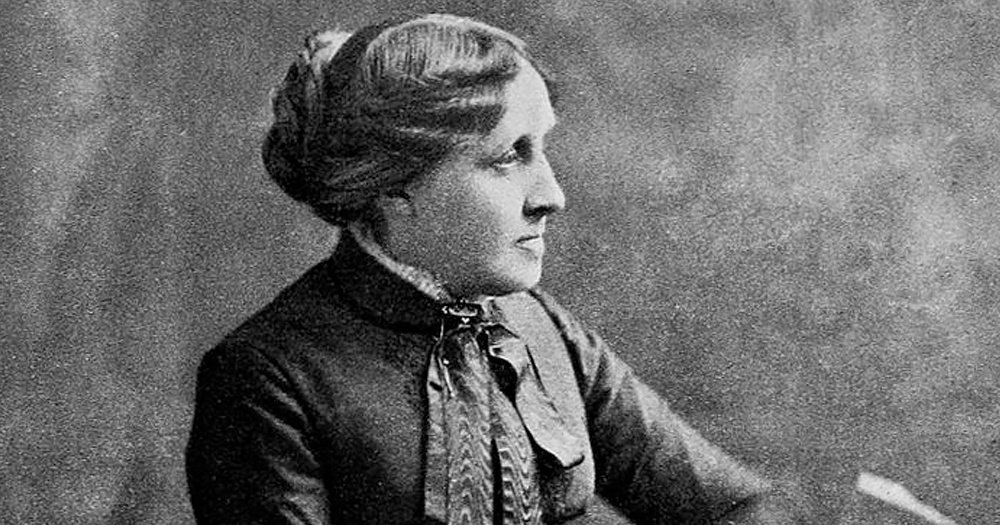I approached writing this piece with the knowledge that Lou May Alcott wrote Little Women. The Greta Gerwig film adaptation of the acclaimed novel is a masterpiece and a film I love dearly.
After further research of the beloved author, I came to realise that they are nothing short of inspiring. Alcott directly mentioned their relationship with gender and that information is available for people to read even now, years after their death.
I’m going to use they/them pronouns when addressing them in this piece as I feel it would be unfair to misgender Lou when they so clearly did not identify as female.
“I am more than half-persuaded that I am, by some freak of nature, a man’s soul put into a woman’s body.”
when i began my research on louisa may alcott and little women i'd hedge a lot, like – the concept of transness hadn't been invented, the vocabulary didn't exist, who's to say – but standing on the other side of two years of archival research… lou alcott was trans. period.
— Peyton Thomas (@peytonology) April 20, 2022
Born in 1832 in New England, Lou was the second of four daughters. Their family was intellectual and strived for perfection – a quality that Lou would carry with them for the rest of their life.
Unbeknownst to Lou, they were born in an era that expected them to succumb to their duties as a woman.
They acknowledge this in a letter to their father saying “I fell with a crash into girlhood, and continued falling over fences, out of trees, up hill and down stairs tumbling from one year to another till strengthened by such violent exercise the topsey turvy girl shot up into a topsey turvy woman.”
It has been said that their vivid imagination is what fuelled them to overcome the expectations of life for a woman in the conservative Victorian era… and never were truer words spoken.
Lou’s gender identity has been the subject of speculation for many years. It is believed that they hid in plain sight expressing a longing for a male identity.
The Louisa May Alcott Society have emphasised the significance of the authors identity saying it’s “so important to acknowledge that [Alcott] never fit a binary sex/gender/sexuality system.”
They preferred to be called Lou and were known for going by masculine alternatives. Alcott’s family loved nicknames and called them Louy, which is pronounced the same way as Louis.
The Little Women writer recorded in one of their childhood diary entries: “I don’t care much for girls’ things,” saying “People think I am wild and queer.”
Alcott identified strongly with boyhood and manhood saying, “I was born with a boys nature and always had more sympathy for and interest in them than in girl.” They further explains that they fought “with a boys spirit under my bib and tucker”.
Lou even hinted at their sexual preference in an 1884 interview when they were asked why they believed that they were “a man’s soul put into a woman’s body”.
Alcott explained “Well, for one thing, because I have been in love in my life with ever so many pretty girls, and never once the least little bit with any man.”
Lou felt so detached from girlhood that when they were originally asked to write a “girls’ story”, they were shocked.
Alcott “never liked girls or knew many, except my sisters” which subsequently inspired the Little Women story we know and love today.
Women who read the influential novel were so bothered by the fact that Jo doesn’t marry Laurie (spoiler alert!) that Alcott received numerous letters demanding that they change the beloved character’s outcome.
They responded to these demands incorporating their own personal views saying, “Girls write to ask who the little women marry, as if that was the only end and aim of a woman’s life. I won’t marry Jo to Laurie to please anyone.”
the biggest literary mistake to DATE is not giving jo a girlfriend at the end of little women
— anania (@Anania00) June 10, 2022
Lou May Alcott existed in the same era as Anne Lister who has famously been referred to as the “first modern lesbian”.
Similarly to Lou, Anne expressed feelings of detachment from her gender identity and wrote about them in her diary which subsequently inspired the critically acclaimed BBC One television series starring Suranne Jones.
Alcott explored their gender identity in a time when there wasn’t the correct understanding or acceptance of doing so. They are amazing and someone to be celebrated for their bravery and honesty.
© 2022 GCN (Gay Community News). All rights reserved.
Support GCN
GCN is a free, vital resource for Ireland’s LGBTQ+ community since 1988.
GCN is a trading name of National LGBT Federation CLG, a registered charity - Charity Number: 20034580.
GCN relies on the generous support of the community and allies to sustain the crucial work that we do. Producing GCN is costly, and, in an industry which has been hugely impacted by rising costs, we need your support to help sustain and grow this vital resource.
Supporting GCN for as little as €1.99 per month will help us continue our work as Ireland’s free, independent LGBTQ+ media.
